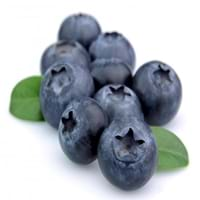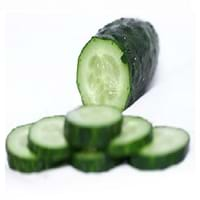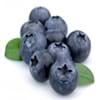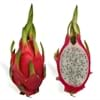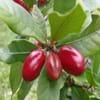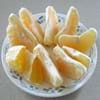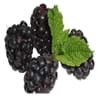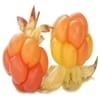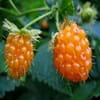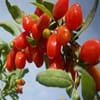Health Benefits
Cancer prevention, Heart care, Increases metabolic rate, Strengthening of bones, Treatment of skin Diseases
Arthritis treatment, Cancer prevention, Eczema treatment, Increases metabolic rate, Kidney stone treatment, Prevents constipation, Removes toxic metals, Treatment of alzheimer's disease
General Benefits
Anti oxidant properties, Boosts immune system, Digestive aid, Eye care, Improves blood circulation, Sore throat treatment
Anti oxidant properties, Anti-inflammatory properties, Controls blood pressure, Digestive aid, Strengthens bones, Treatment of sore eyes
Skin Benefits
Anti-aging benefits, Reduces wrinkles, Skin rejuvenation, Treatment of skin diseases
Heals sunburn, Hydrates skin, Skin rejuvenation, Skin revitalization, Treatment of dark spots, Treatment of skin diseases
Hair Benefits
Protects hair
Promotes longer and healthier hair, Protects hair, Regulates hair growth, Shiny hair
Allergy Symptoms
Abdominal pains, Coughing, Diarrhea, Itching, Runny nose, Sneezing, Swelling of mouth, tongue or lips, Wheezing
Breathing difficulty, Decrease in blood pressure, Diarrhea, Itching, Red rash, Runny nose, Sneezing, Vomiting, Watery eyes
Side Effects
Allergic reaction
Stressed heart, Irritation, Swelling, Swelling around mouth, Throat swelling, Tongue swelling, Strained blood vessels
Lactating Women
Yes
Not Available
Best Time to Eat
Best if taken as a breakfast (or empty stomach), As a snack in the late afternoon, Don't consume at night and before bed, Eat the fresh ones, avoid mixing with any other foods, don't eat after meal., Morning time (before lunch)
Along with meal, As a snack in the late afternoon, Eat the fresh ones, avoid mixing with any other foods, don't eat after meal., Strictly avoid empty stomach
Vitamin A (Retinol)
Not Available
Vitamin B5 (Pantothenic Acid)
Not Available
Vitamin B6 (Pyridoxin)
Not Available
Vitamin B9 (Folic acid)
Not Available
Vitamin C (Ascorbic Acid)
Vitamin E (Tocopherole)
Not Available
Vitamin K (Phyllochinone)
Not Available
Lutein+Zeaxanthin
Not Available
Phytosterol
Not Available
Calories in Fresh Fruit with Peel
Calories in Fresh Fruit without Peel
Not Available
Calories in Frozen Form
Not Available
Not Available
Calories in Dried Form
Not Available
Not Available
Calories in Canned Form
Not Available
Not Available
Calories in Juice
Not Available
Calories in Jam
Not Available
Calories in Pie
Not Available
Type
Berry
Fruit vegetable, Melon
Season
Summer
Spring, Summer
Varieties
Dwarf Huckleberry, Cascade Huckleberry, Mountain huckleberry and Blackwinter Huckleberry
Armenian, English, Garden, Kirby, Lemon and Persian
Color
Blue, Purple, Purplish black
Dark green, Green
Inside Color
Purple
White
Taste
Sweet
Juicy, Watery
Origin
North America
India
Grows on
Not Available
Vines
Soil Type
Loamy, Sandy, Well-drained
Loam
Climatic Conditions
Humid, Warm
Warm
Facts about
- "I'm your huckleberry" is a way of saying that one is just the right person for a given job.
- The phrase "a huckleberry over my persimmon" was used to mean "a bit beyond my abilities".
- Outer waxy coating of cucumber can erase the pen writing.
- Pressing cucumber on roof of mouth for 30 sec will eliminate bad breath.
- It is made up of 96% water.
- English cucumber can grow longer than 2 feet.
Top Producer
United States of America
China
Other Countries
Canada
Egypt, Indonesia, Iran, Japan, Russia, Spain, Turkey, Ukraine, United States of America
Top Importer
Canada
France
Botanical Name
Gaylussacia brachycera
Cucumis sativus
Synonym
Not Available
Not Available
Subkingdom
Tracheobionta
Tracheobionta
Division
Magnoliophyta
Magnoliophyta
Class
Magnoliopsida
Magnoliopsida
Subclass
Asteridae
Dillenhidae
Order
Ericales
Cucurbitales
Family
Ericaceae
Cucurbitaceae
Genus
Gaylussacia
Cucumis
Species
G. brachycera
C. sativus
Generic Group
Heath
Not Available
Compare Huckleberry and Cucumber
It is important compare Huckleberry and Cucumber as both the fruits have a different nutritional value. Their comparison can be done on the basis of their vitamin and mineral content, calories, benefits as well as characteristics, making it easier for us to choose the best fruit for our diet. Their general health benefits are as follows:
Huckleberry Benefits: anti oxidant properties, boosts immune system, digestive aid, eye care, improves blood circulation and sore throat treatment.
Cucumber Benefits: anti oxidant properties, anti-inflammatory properties, controls blood pressure, digestive aid, strengthens bones and treatment of sore eyes.
Fruits are also used as a remedy for various hair problems. The hair benefits of Huckleberry are: protects hair and hair benefits of Cucumber are: promotes longer and healthier hair, protects hair, regulates hair growth and shiny hair. Some fruits are known to cause allergic reactions. The allergy symptoms of first fruit are: abdominal pains, coughing, diarrhea, itching, runny nose, sneezing, swelling of mouth tongue or lips and wheezing and the symptoms of second fruit are: breathing difficulty, decrease in blood pressure, diarrhea, itching, red rash, runny nose, sneezing, vomiting and watery eyes. Get sorted Huckleberry vs Cucumber comparison with the help of fruit comparison tool by fruitvs.com.
